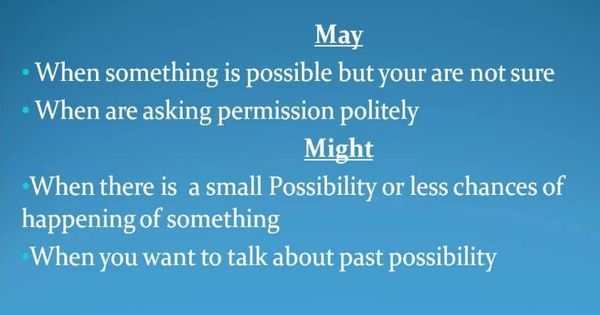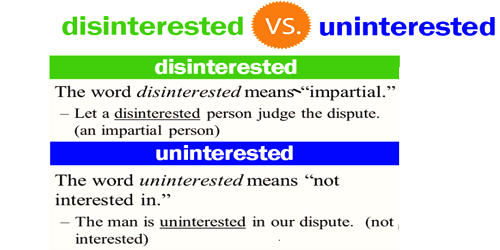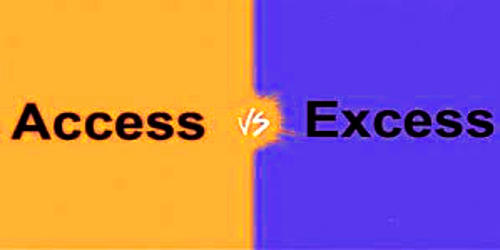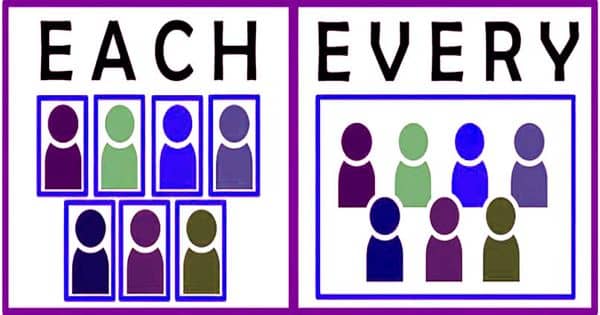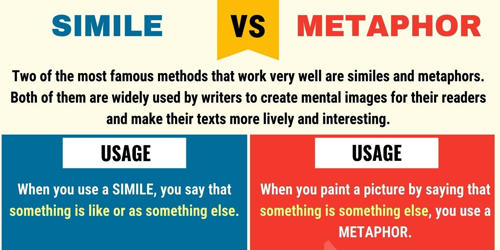The two words may and might cause a lot of confusion in English and many writers aren’t sure when to use which one. In English Grammar, the words may and might are the modal auxiliary verbs, which are used in sentences with other verbs to express tenses, voice, mood, etc. The grammatical distinction between the two words is tense-based—may is the present tense and might the past tense.
The basic difference between MAY and MIGHT is that MAY is the present form and MIGHT is the past form of MAY.
As they both reflect the possibility of any event, there are instances when people use them interchangeably. Both MAY and MIGHT are used pretty much in the same context but in different tenses. The basic difference between MAY and MIGHT is that MAY is the present form and MIGHT is the past form of MAY. It happens due to lack of proper understanding regarding how, when, and where to use them. ‘May’ can be used when there is a strong possibility of happening of an event. While we use ‘may’ in the sentences which are factual and somewhat possible, ‘might’ is used in the situation which is hypothetical, and the chances of possibility are quite less.
Difference between May and Might
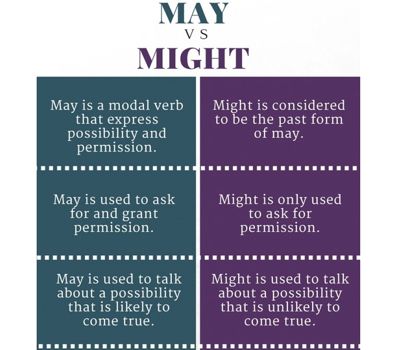
MAY
- ‘May’ is an auxiliary verb, used to express a strong possibility of happening of an event, but still, it is not certain.
- ‘May’ is a verb used in sentences to show a higher degree of possibility of the happening of an action or event.
- ‘May’ is a modal auxiliary verb that can be used in different senses in different sentences. When we talk about possible events or actions that take place in the future, we use may. To use may, you have to use it with the verb’s base form.
- You can use ‘may’ in both seeking and granting formal permission from/to someone.
- Example: I may be late today.
MIGHT
- ‘Might’ is a past form that is used in sentences when there is a possibility of occurrence of an event but to a smaller extent.
- ‘Might’ is a past participle form of may, which is also used to show the possibility of the occurrence of an event, but only when there is a small degree of possibility.
- Might is also an auxiliary verb and a past participle of may. It is used in a variety of sentences but in a different context. One can use might in the sentences where there is some possibility of occurrence of a future event.
- You can use ‘might’ for seeking tentative permission only and not for granting it.
- Example: She might get late to the office.
